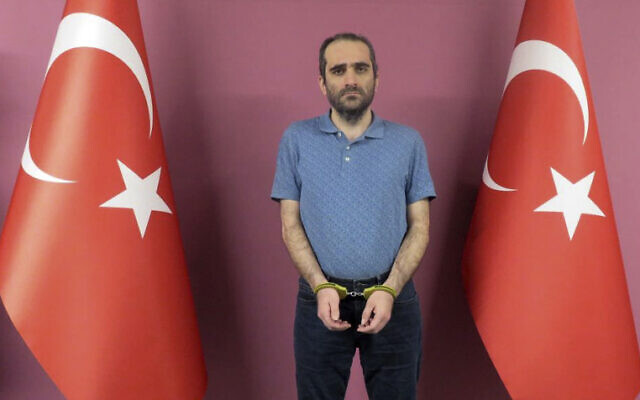

Selahaddin Gulen brought to Turkey after being captured overseas; his uncle, US-based cleric Fethullah Gulen, is accused by Erdogan of masterminding failed coup in 2016
Turkish spies have snatched in Kenya a nephew of a longtime foe of President Recep Tayyip Erdogan and have brought him back to Turkey, media and family said on Monday.
Ankara accuses US-based Muslim preacher Fethullah Gulen of masterminding a failed coup in 2016 that left hundreds dead and thousands more injured. Since 2016, Turkey has arrested tens of thousands of people suspected to have links to Gulen.
Turkish state news agency Anadolu reported that Selahaddin Gulen was brought back to Turkey by agents from Turkey’s National Intelligence Organization (MIT), quoting unnamed security sources, but did not say where he had been arrested.
In a video posted on social media on May 20, Selahaddin’s wife confirmed that the couple lived in Kenya and that she had not heard from her husband, who taught at a school in Nairobi, since May 3.
Individuals and media linked to Gulen’s movement said on social media that Selahaddin had been “kidnapped” in Kenya, as they launched a campaign calling for his release.
Selahaddin Gulen is accused of belonging to the “FETO terrorist organization,” the description used by Ankara for Fethullah Gulen’s movement.
“We will soon announce the capture of a very important FETO member. He is in our hands,” Erdogan said on May 19, a likely reference to Selahaddin Gülen.
The preacher, who lives in Pennsylvania, insists that he is the head of a peaceful network of charities and companies, and denies any links to the 2016 coup bid.
But Erdogan, who once was allied with Gulen, describes him today as the leader of a “terrorist” group which seeks to infiltrate and overthrow his government.
Since the failed coup, Turkey has “repatriated” dozens of people accused of belonging to Gulen’s network, regardless of the repercussions such actions may cause abroad.
The kidnapping of six Turkish nationals in Kosovo by MIT agents in 2018 sparked a political crisis in the Balkan country, leading to the sacking of its interior minister and intelligence chief.
Ankara has also put pressure on many countries, especially in the Balkans, Central Asia and Africa, to close schools linked to the “Gulenist” movement.
Kenya refused in 2016 to close six establishments despite Ankara’s insistence.
It was not immediately clear whether Selahaddin Gulen was seized with the agreement of the Kenyan authorities.
In 1999, Turkish services arrested the leader of the outlawed Kurdistan Workers’ Party (PKK), Abdullah Ocalan, in Kenya. Ocalan remains imprisoned in Turkey.
The PKK has waged an insurgency against Turkey since 1984 and is blacklisted by Ankara’s Western allies.
The raids continue against alleged Gulen members, with almost daily police operations to arrest suspects across the country.
Since 2016, more than 140,000 public sector workers including teachers and judges have also been sacked or suspended over suspected Gulen ties.
|